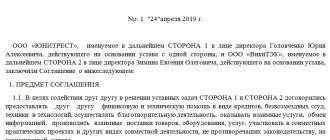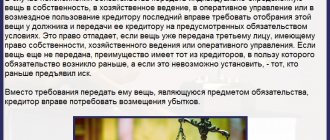A bribe to a teacher is an illegal act for which criminal liability is provided. Interestingly, sanctions will apply not only to the recipient of the financial reward, but also to the person who transferred the money to the teacher. This is due to the requirements of the new anti-corruption law, which states that the reluctance of citizens to fight bribery, as well as (which is often observed in practice) the voluntary offer of financial rewards leads to an increase in such crimes and complicates the fight against them.
During the learning process, each student has to deal with missed classes (work or just overslept), delays in submitting essays and coursework, and bad grades that require correction. Each teacher has his own methods of working with irresponsible students, but this is his direct responsibility, so there is no need to “thank the good” professor. For his part, a teacher who not only received money, but also demanded its transfer or became the owner of other material benefits for “special” treatment of a student, commits a criminal offense and must be punished accordingly.
Legal concept of bribery
A bribe is usually understood as all forms of incentives for an official in exchange for the performance of functions within the framework of his official position. This applies to the transfer of money, material assets, the provision of services, encouragement of close relatives of an official, as well as the transfer of expensive gifts. For its part, the recipient of the valuables, using his powers, makes biased decisions and in every possible way contributes to satisfying the interests of the dishonest client.
Legal liability for giving a bribe in the Russian Federation is provided not only for the actual receipt of a benefit, but also for the offer or demand for it.
The concept of bribes in education
Bribery is the transfer to an authorized official of material benefits or the equivalent of such benefits in exchange for performing certain actions in favor of the person giving the bribe.
In the educational system, bribes are transferred to teachers, school directors and university rectors for the following purposes:
- entering the required grades into the progress report or grade book;
- crediting academic work not actually completed;
- illegal appointment of an increased scholarship;
- issuing a warrant for residence in a hostel;
- other administrative actions.
Bribes to teachers are most often transferred in the form of cash or symbolic valuable gifts, less often - in the form of any services, the provision of which can be organized by the bribe giver.
The role of bribe giver is usually university students, as well as parents of schoolchildren and students.
Criminal law norm
To trigger criminal liability for property crimes, the legislator limits the minimum value of the subject of the criminal act. If the price does not exceed the established threshold, then liability is assigned within the framework of administrative legislation. There are no such restrictions in matters of bribery, that is, receiving even 100 rubles will be regarded as a criminal offense. In practice, it happens that the paperwork upon receipt/giving of a bribe is terminated due to insignificance (a small amount of gratitude), but this happens extremely rarely.
The punishment for giving a bribe is provided for in Art. 291 of the Criminal Code of the Russian Federation . The article contains several parts, the use of which determines the sanctions applied. Namely:
- Personal transfer of material assets to officials and foreign citizens, as well as representatives of public state and international organizations, as well as the use of third parties - intermediaries.
- A significant bribe.
- Conveying gratitude for committing illegal actions if the citizen offering the money knows in advance that future actions will be illegal.
- Committing actions by a group of persons by prior conspiracy, as well as causing material damage on a large scale.
- The size of the bribe reached a particularly large size.
A teacher who agreed to accept a reward or demanded money/gifts from a student will be liable under Art. 290 of the Criminal Code of the Russian Federation . For such intentional actions he may bear the following liability:
- penalties (counted as a multiple of the amount of the bribe);
- imprisonment for a term of 3 years;
- forced labor for up to 5 years;
- deprivation of the right to engage in a certain activity or hold a specific position.
A teacher asks for a bribe - what to do?
If a teacher demands a bribe, then
- Make some noise at the university. Raise your ears to the dean's office and rector's office. It is necessary to create a resonance so that all students are indignant and rebel against such treatment. Yes, this method is not always favorable in outcome. The university management is trying to get rid of the hype, so the student can be kicked out along with the teacher so that the matter does not progress.
- Start by contacting the Ministry of Internal Affairs of the Russian Federation. A police station would be a good place to start. Write a statement against the teacher that he is extorting a bribe. Perhaps the matter should be limited to just this article. The teacher will be summoned for questioning and then the case will be sent to court. Or it will be dealt with by the procurator, who will pursue the case to the end. Perhaps the student will be involved in the operation to catch the teacher red-handed.
- If the case was closed under the article “Extortion”, but the teacher remained working at the university, and you were expelled, then there is a way out. You can call upon public organizations and the media to publicize the circumstances of the case. In this case, the university management will not be able to remain silent. After all, rumors can reach higher authorities. Therefore, they will give you an answer and reinstate you at the university.
So, we told you about three development options if a teacher asks for a bribe and you don’t want to pay. You can move through the options step by step, starting with the local one. Or choose one of them and act responsibly.
Additional nuances
During the investigation of such crimes, difficulties arise in determining the following situations:
- Only officials can be held liable for a bribe. But can a professor be classified as an official or will sanctions apply only to representatives of the dean’s office who combine leadership and teaching activities?
- It happens that a student gave money to the teacher, but did not receive the desired grade. On the part of the student, providing a monetary reward will be considered as giving a bribe. Under what article the teacher should be held accountable and whether there will be sanctions at all depends on the circumstances of the case.
Who benefits from a bribe: a student or a teacher?
According to current legislation, bribery is an illegal act when one person forces another to give a bribe in cash or any other form, receiving a certain service in return.
Persons breaking the law
It is clear that anyone can give a bribe, but who to give it to is another matter. They give a bribe to someone who can solve the “problem” and therefore has a certain power. At the same time, it is important to remember that the bribe-taker and the bribe-giver are breaking the law. It follows that they (more precisely, each of them) may incur administrative, criminal and other liability.
There are several scenarios for the development of events related to bribes and their extortion in universities/secondary institutions:
- The student himself offers the teacher a bribe. Here the student has a specific goal - to simplify his studies, give a bribe and “not worry” about passing any work, test or exam.
- The teacher demands a bribe. Here the teacher seeks to make money, to teach “additional reward” for simplifying the task.
An important condition for bribery is that both parties must come to a compromise together: agree to the conditions or negotiate them, refuse to participate, etc.
Any difficulties?
Need teacher help?
We are always happy to help you!
master's theses
How to avoid punishment
The legislation provides for several conditions under which the guilty person will be released from future legal liability. These include voluntary reporting of a crime to the police. The second circumstance is that the recipient of the material benefit himself extorted gratitude and created the conditions for receiving it. The third factor is the active cooperation of the police in the investigation of bribery crimes.
Thus, two parties are to blame for the bribe. Therefore, both participants will be held accountable. And if the person transferring the reward can be exempt from legal liability, then the recipient of the valuables will be punished, regardless of cooperation in the investigation of the offense.
How do they check who is guilty of giving a bribe to a teacher?
To find out that a teacher actually asked a bribe from a student, different methods are used. First, you need to get evidence from other students that they heard or saw the teacher asking for a bribe. An operation is then carried out in which the official is caught red-handed.
To do this, the student is given numbered cash, which is already sprinkled with a dye for fingerprints. A wiretapping bug is also placed on the student. The conversation must be recorded and will undergo linguistic examination in the future. If all the direct evidence is collected, the task force will immediately burst into the office and handcuff the corrupt official.
Of course, such large-scale operations are carried out only to incriminate major officials. The teacher is not included in the category of major corrupt officials, since he cannot take millions and billions of rubles. However, if it is planned to give a large bribe, or transfer money from the entire faculty, then it will take place under the supervision of the task force.
For a particular case, it will be enough to collect most of the indirect and some direct evidence. For example, if the student himself records a conversation with the teacher on a voice recorder. It must indicate the place of meeting and transfer of money, and it is also necessary that the teacher himself “burn” himself.
It is better to correspond on social networks. Not all teachers know about the dangers of social networks and therefore are not afraid to express themselves in correspondence.
Thus, the investigation will help to find out the details and circumstances of the corruption offense. If a teacher actually asks for a bribe, he will be punished to the fullest extent of the law.
Bribe the teacher
Please help me with my problem
I wrote to different authorities, for example:
Complaint and Claim against the work of the prosecutor's office of the Irkutsk region and the mountains. Irkutsk
1.Why can’t anyone hear me? Why do they require additional or new arguments? I don’t want to make up anything - I’m speaking as it actually happened, so in principle there can be no new (invented) arguments!
But I present new arguments that Fedorova so desired...
2.30.10.2015 at 10:30 Irkutsk time, a worker from the prosecutor's office of the Sverdlovsk region of the mountains called me. Irkutsk Verbitsky, in my opinion, application number ID 942784 to the Prosecutor General's Office of the Russian Federation.
He said the following: “there is no need to conduct a prosecutor’s check, there is no point in interviewing representatives from the list below (health workers in the mountains of Irkutsk and the region), because he immediately came to the conclusion that it would not be possible for me to receive a referral for hospital treatment for my son with all the ensuing consequences.” It was necessary - it was my own fault.
All! There is no need for a prosecutor’s check on this!”
From here:
THE MAIN CORRUPTIONERS OF RUSSIA ARE TEACHERS AND DOCTORS AND... SORRY, WORKERS OF THE PROSECUTOR'S OFFICE.. AND LAW ENFORCEMENT AGENCIES IN GENERAL.
Dmitry Potapenko said that the main corrupt officials are teachers and doctors. Here is the official comment from Bastrykin’s press secretary Markin on this matter.
The damage from corruption crimes in Russia amounts to about 40 billion rubles per year. Such data was given on air by the Vesti FM radio station by the official representative of the Investigative Committee, Vladimir Markin, Interfax reports. However, he noted that in the European Union these figures are “significantly higher.”
According to a representative of the Investigative Committee, in the first six months of 2015, about 11.5 thousand cases of corruption were initiated in Russia, about 6.5 thousand were sent to court.
Answering a question about the need for an action like Operation Clean Hands, carried out in Italy against the mafia, Markin said that this is not required, arguing that in Russia corruption is present mainly at the grassroots level.
“A person does not encounter manifestations of corruption in the highest echelons of power. People are faced mainly with facts of corruption at the grassroots level - bribes to doctors, teachers,” he explained.
Source → Published by Mikhail no matter, 12/21/2015 at 17:01
3. Indeed, I asked for help from the Prosecutor's Office of the Russian Federation, since the Ministry of Health refused to treat my son, including outside the country, and continues to mock me.
4. I, “out of thoughtlessness,” spent 38 years seeking adequate inpatient treatment for my child.
I came on a call from M.M. Naumova. from MOPED for a referral issued for my son for inpatient treatment for epilepsy.
I imagined that my many years of efforts had led to the long-awaited results, but I was sorely mistaken:
In order to stay in a hospital for the care and control of his son, a disabled child who was incompetent, the doctors demanded that one of his parents be with him.
The prosecutor's office has all the documents.
Clarifications you requested:
Department for consideration of applications and reception of citizens.
Are flowers considered a bribe to a teacher?
Flowers can be considered an expensive gift if their price exceeds 3,000 rubles. However, no one will open a case because the teacher was given flowers for Knowledge Day in the amount of 6,000 rubles.
The fact is that flowers cannot be resold or returned. They have an expiration date, so their value decreases every day. In addition, none of the teachers would think of using their official powers for a bouquet of flowers or a box of chocolates.
But before you give your supervisor the most expensive and beautiful bouquet, ask him for permission. There are teachers and teachers who immediately refuse to take gorgeous flowers for free. They leave them in the student’s hands, or force them to take them to the department and give them to all teachers.
Thus, the anti-corruption program in our country is working. People who are vested with official powers begin to feel a better sense of legal responsibility.








